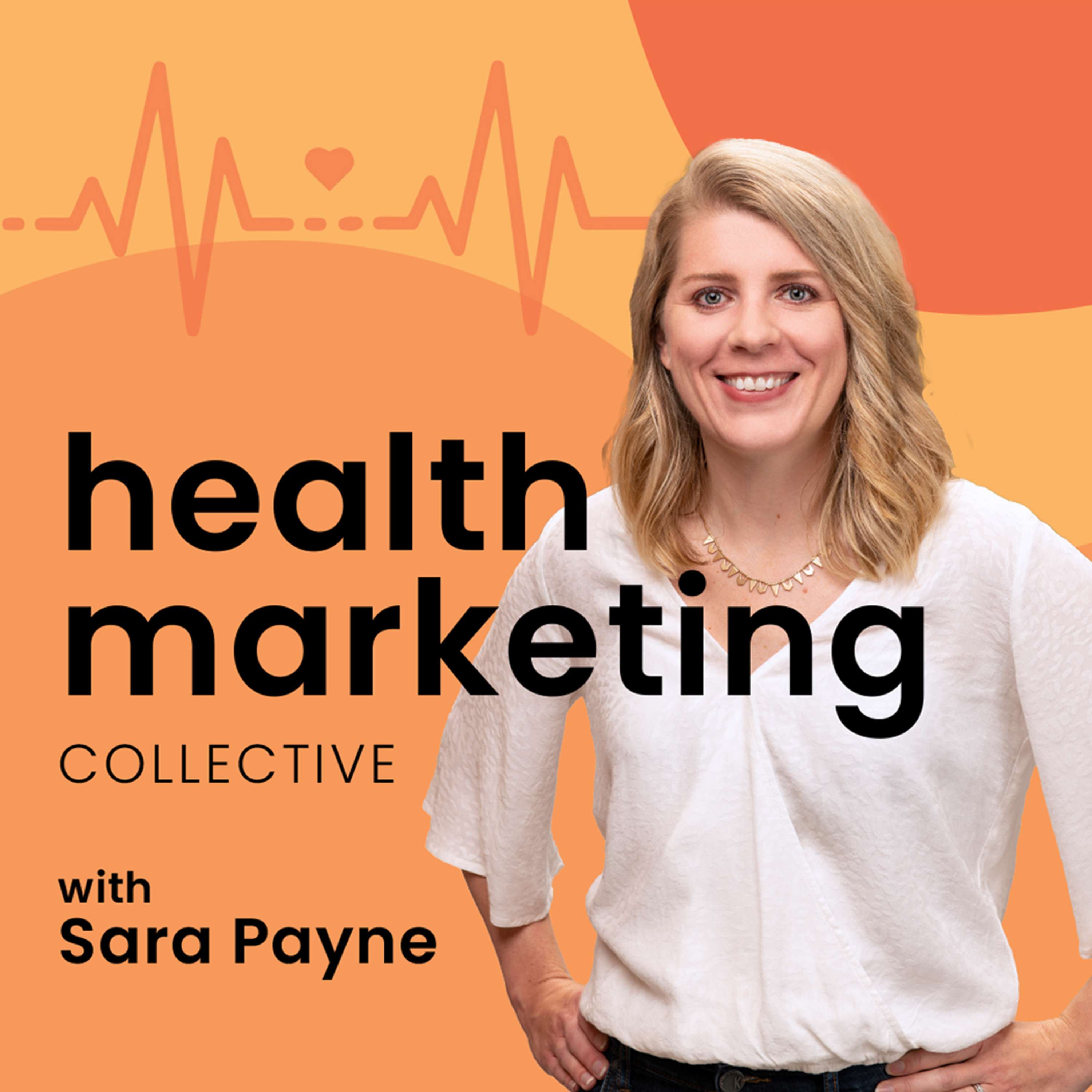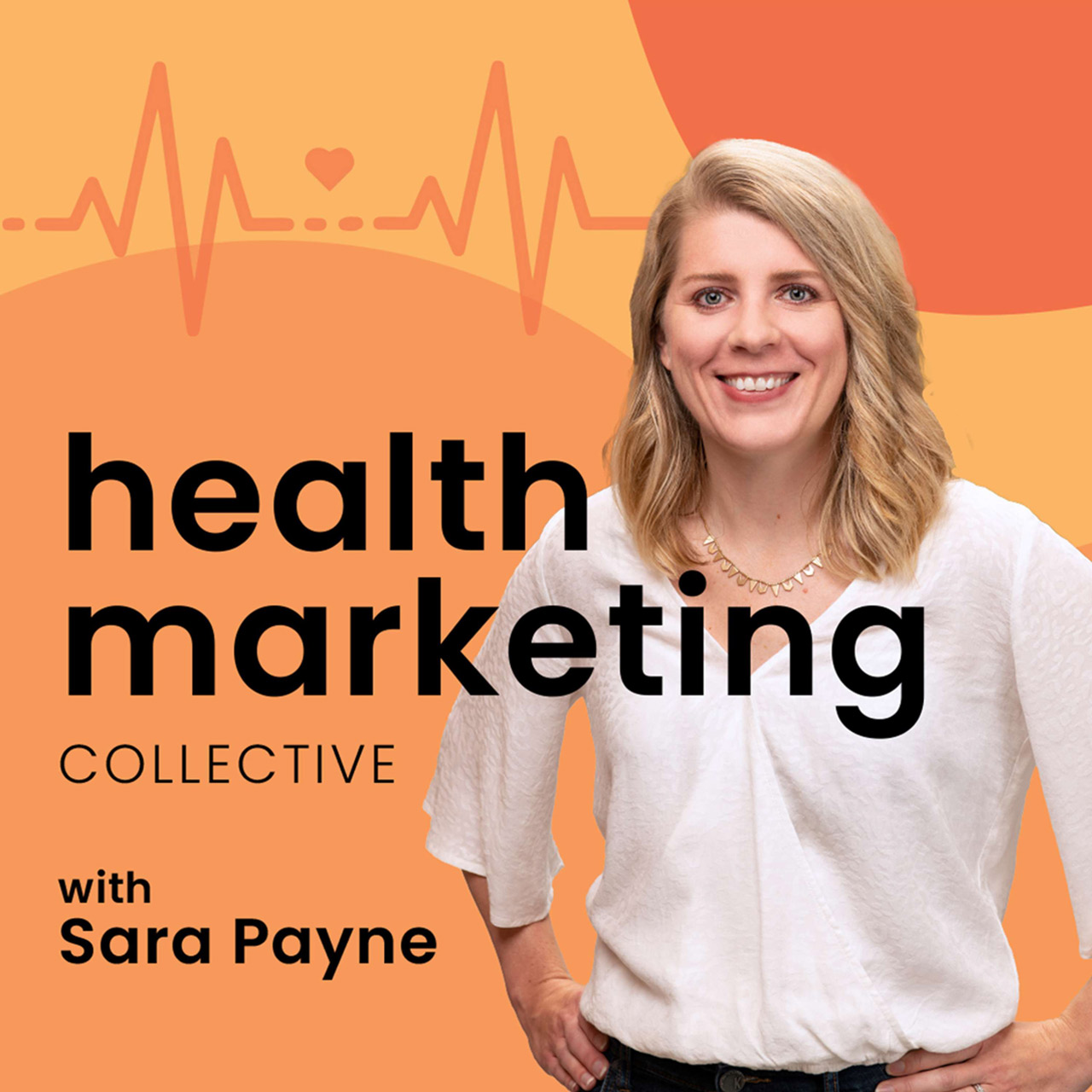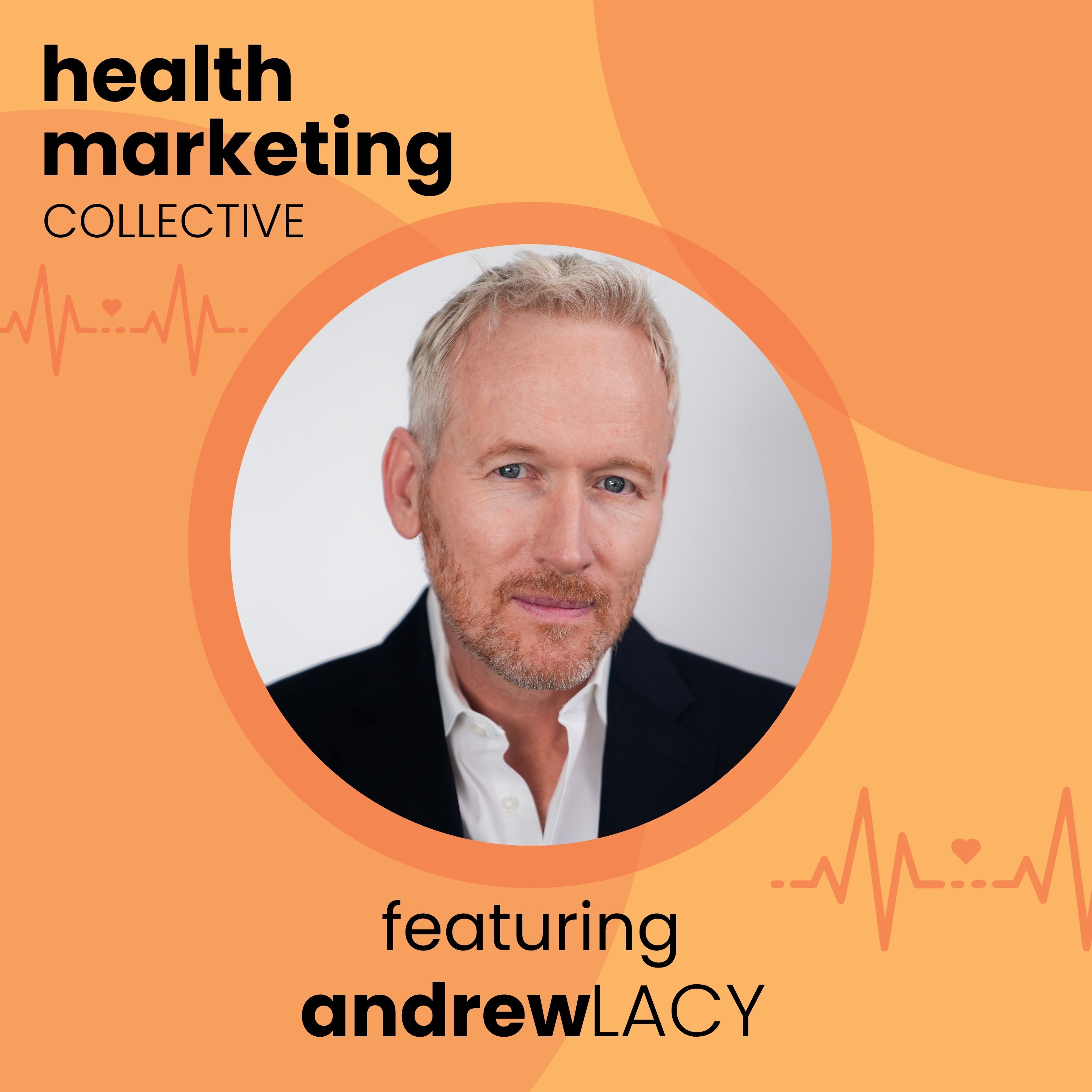Welcome to the premiere episode of the Health Marketing Collective, where strong leadership meets marketing excellence. Trust is everything in healthcare, and this episode unravels the keys to leveraging trust as a strategic driver for your business.
Sara Payne, our host and a health marketing strategist at Inprela Communications, is sharing four foundational rules for building and maintaining trust between healthcare brands and their audiences:
1. Use purpose-driven messaging: Understand the impact your company aims to make in the world and why it matters. Communicate your purpose authentically and consistently across all marketing channels to create a deeper connection with your audience.
2. Be approachable: Simplify your messaging, avoid jargon, and engage openly with your audience to foster trust and support. Humanize your brand to make it relatable and less intimidating.
3. Leverage third parties to get your story out: Seek endorsement from peers, customer advocates, and industry experts to build credibility and reach new audiences organically. Their stories and experiences act as social proof, establishing trust and loyalty with your customers.
4. Be authentic and unscripted: Replace corporate jargon with real, passionate communication. Showcase the human side of your brand through unscripted content to build meaningful connections with your audience.
Thank you for being part of the Health Marketing Collective, where strong leadership meets marketing excellence. The future of healthcare depends on it.
Transcript
Hello, everyone, and welcome to the Health Marketing Collective, where strong leadership meets marketing excellence. I'm Sara Payne, a health marketing strategist at Inprela Communications, and I'm bringing you fascinating conversations from some of the industry's top marketing minds. We're gonna celebrate your triumphs in health marketing and foster real talk about tough challenges that you face. What are the things that are keeping you up at night? And how can we tap some wisdom and advice from your peers, from this community to help address those challenges. If you have suggestions for topics you'd like to see us address or health marketing leaders you think I should interview, drop me a line. You can find me on LinkedIn as Sara Cziok Payne or sara@inprela.com. I have some really smart, talented, accomplished, and respected marketing leaders lined up for this first set of episodes. You will not be disappointed with the caliber of insights the collective is going to dish out.
Sara Payne [:But on today's episode, I'm keeping the mic to myself. We're gonna talk about arguably one of the most important things in health marketing, building trust. Trust is critical to everything that we do in health care. That's because health decisions are deeply personal, highly consequential, expensive, and often very complex. We're talking about people's health after all, which is one of the most important things in their lives. It's the lowest rung of Maslow's hierarchy of needs. Chief marketing officers agree. Building trust is one of the most important things in health marketing.
Sara Payne [:sale. According to Edelman's:Sara Payne [:Everything that we do at health marketing should be about building trust. This is why the work that we all collectively do to build our brands and tell our stories should be viewed as a strategic driver of the business. Marketing is not just about building buzz or building awareness for your brand. This is about elevating buyers' trust in your brand, thereby winning the sale. Of course, building trust isn't just about attracting and retaining customers. It's also about contributing to better outcomes at healthcare. And that means for health brands that achieving and maintaining trust is both a strategic driver for the business and a moral obligation. No wonder it's keeping you up at night.
Sara Payne [:So how do you build trust for your brand? I'm gonna lay out for you four rules for health marketing that are foundational in building and maintaining trust between health care brands and their audiences. Rule number 1, use purpose driven messaging. I don't mean it in an altruistic sense. I mean it from a mission, vision, and core value standpoint. What matters to your company? What impact are you looking to make in the world? Why are you doing what you do, and why should I care about it? This goes back to Simon Sinek's famous concept that people don't buy what you do, they buy why you do it. You've got to have a very strong purpose driven narrative that is a strategic anchor for your brand storytelling very consistently across all of your channels. And I will say that this is a pretty big gap for many brands. Some brands actually have the narrative nailed, but it's one thing to have it in a document.
Sara Payne [:And it's another thing to be using it very consistently across all of your marketing channels. So it sounds easy and intuitive, but it's not. It's hard work, and that's why there are so many books written about purpose driven marketing. It's imperative that you figure this out, and you've got to tell it really well, authentically, without selling. Otherwise, people won't trust you. And understand, of course, that it's not this it's not just your story. It's their story, the customer's story. It's telling the story of the problems that you solve through the lens and voice of those that you actually solve it for.
Sara Payne [:And of course, to genuinely connect with people, you'll need to do so, not only through words, but through actions. So, make sure you're really showing people through your storytelling and your marketing, how you're actually living up to your mission as an organization. So just to really tie all of this together, how exactly does purpose driven messaging lead to increased trust? So first, purpose driven messaging resonates with customers' core values and their own concerns, which then creates a deeper connection with them. When customers believe that a brand's purpose aligns with their own values, they're more likely to trust and engage with that brand. Secondly, purpose driven messaging can serve as a point of differentiation for you. In a crowded marketplace, a clear and purpose driven mission can really set a brand apart, making it more memorable and trustworthy. It also signals that the brand is committed to more than just profits, that you're committed to making a positive impact on health outcomes. And lastly, purpose driven messaging fosters an emotional connection with the audience, and this emotional investment can really translate into greater trust and loyalty.
Sara Payne [:Rule number 2, be approachable. That means I shouldn't have to think hard to understand what you're saying, And I think we make that mistake all too often in health care. I mean, just take health insurance as one example. How many Americans really understand what a deductible is? I I know some really smart people who struggle with defining what a deductible is, and I don't blame them because we make it too complicated. We just can't have that. If I don't understand it, I can't act on it. And even worse, if I don't understand it, I feel isolated, and it feels like you're not my advocate, and I can't trust you. So brands must be obsessive about making their messaging simple, easy, and approachable.
Sara Payne [:Avoid jargon and compact complex language as much as possible. Use a more conversational and friendly tone in your communications. Engage openly on social media platforms. Respond to comments. Use polling features to interact directly with your followers. Share stories and images from behind the scenes of your organization to give a human face to your brand. When we do these things, when our brand is approachable, it encourages people to ask questions, seek information, and engage. They let their guard down.
Sara Payne [:And this openness fosters trust because people feel supported and understood. Lastly, approachability humanizes a health care brand, making it seem more relatable and less intimidating, which is crucial in health care because fear and uncertainty can be significant barriers to seeking care. And on the b to b side, of course, when there's approachability, business partners are more likely to engage in honest dialogues with you about their needs, their expectations, and even share feedback. And this leads to more productive relationships. So rule number 2 is to be approachable. Rule number 3 in building trust for your brand, is leverage third parties to get your story out. Buyers are savvy. They're less likely to trust your slick marketing brochure, your advertisement, or frankly, your website, because they know that you control it.
Sara Payne [:You paid to say those things about yourself. They'd rather hear it from others, particularly peers who have used your product or your service. And that's why word-of-mouth marketing, use of KOLs, patient advocates, and case studies are so effective. This third party endorsement really lends credibility to a brand. And when that 3rd party shares your message, it comes with an implicit endorsement that can significantly boost trust. Another benefit, 3rd parties can help you reach new audiences in a very organic way that you might not have otherwise been able to reach. It also provides social proof. Testimonials, reviews, and stories that are shared by third parties really act as social proof demonstrating the brand's value and effectiveness to customers.
Sara Payne [:And that's really a powerful trust building tool because people often rely on the opinions and experiences of others when they're making their healthcare decisions, as we've talked about. So make sure that you have a solid strategy for effectively building those relationships with people of influence, and have a plan for really linking arms with them in your marketing and your storytelling efforts on a consistent basis. On an upcoming episode, we're gonna dive really deep into the use of third parties to get your story out. In fact, I'm gonna talk with one brand leader whose entire marketing program is led by customer voices. I've never seen anything quite like it where our brand has gone 100% all in on customer led marketing. It's pretty unique, and it's led to some really great success for them. So stay tuned for that conversation. I'm also going to invite in some patient advocates to be guests on the podcast to talk about health care brands could do a better job of leveraging patient advocates in their marketing, really respecting the role of patient advocates and their voices.
Sara Payne [:Brands don't always get this right. So I'm gonna have these patient advocates offer some advice for, really, how to get it right. Those definitely will be some rich conversations. So that brings us to rule number 4, be authentic and unscripted. Resist the urge to be so polished in your marketing content a 100% of the time. When communications feel genuine and unscripted, they're more engaging and relatable, which can foster a sense of trust and loyalty. Being authentic and unscripted supports a culture of transparency, which is really important in health care. If you only take one thing from this episode, let it be this.
Sara Payne [:Please replace all your corporate jargon in your corporate speak with real talk. This is hard because corporate jargon can be found a lot of places. Corporate speak sounds something like this. I'm pleased to bring this innovation to market because it's something customers have been asking for. Now that's not terrible, but I think we can do more to really dial up the authenticity in a bigger way. Consider replacing it with language that sounds more like this. I'm sick and tired of this problem over here. It's not okay, because it's not working for people.
Sara Payne [:Our customers deserve better, and that's why we spent months and 1,000,000 of dollars figuring this out. And we're bringing you something that's completely redesigned and actually does what it promises. Can you hear the difference between the 2? Obviously, stylistic preferences and personal voice are gonna come into play with this. But the point is, your brand needs to preach with passion. Every time your executive takes the stage at an event, every press release quote, every time you comment on a major industry development on social media, show up consistently and make the passion clear and unavoidable. I'm gonna give you a simple tactical activity that you can deploy tomorrow to really help bring this rule number 4 to life in a big way. Put your executives on camera and get them talking about your purpose as a company and why you do what you do without a script. This might give them hives at first, but I'm telling you it's worth it.
Sara Payne [:They've got nothing to lose. It's not live. You could shoot and reshoot until they're comfortable with it. Just make sure that it's real and unscripted. Give them a couple of prompts, ask them a couple of questions, and just let them go. Capture their brilliance. We have done this a few times with clients, putting executives or or SMEs on camera unscripted. And, I'm telling you, some real magic comes out of those recordings.
Sara Payne [:And once you have that, you can edit them down into 10 to 15 second snippets that you post on social media. What you're gonna capture is gold on social media, and can go a long way in humanizing your brand, and building those real meaningful connections with your audience. So let's review the 4 rules for building and maintaining trust between healthcare brands and their audiences. Rule number 1, use purpose driven messaging. Rule number 2, be approachable. Kick jargon to the curb. Rule number 3, leverage third parties to get your story out. And rule number 4, be authentic and unscripted.
Sara Payne [:I challenge you to jot these down and then do an honest assessment. Ask yourself how well your marketing program is doing against these four rules. I bet some of you are really killing it in many of these areas. But if you find that you have some deficits and need some support, give me a call and I'll help you out. Remember, trust is everything in health care. And together, these four strategies can create a powerful framework for building trust By focusing on purpose driven messaging, approachability, leveraging third parties, and authenticity, your company will reap the benefits. We're gonna go much deeper on the topic of trust building in upcoming episodes, so be sure to tune in. In fact, do yourself a favor and subscribe to the Health Marketing Collective wherever you get your podcasts.
Sara Payne [:Thanks for being part of the Health Marketing Collective, where strong leadership meets marketing excellence because the future of health care depends on it. We'll see you next time.



